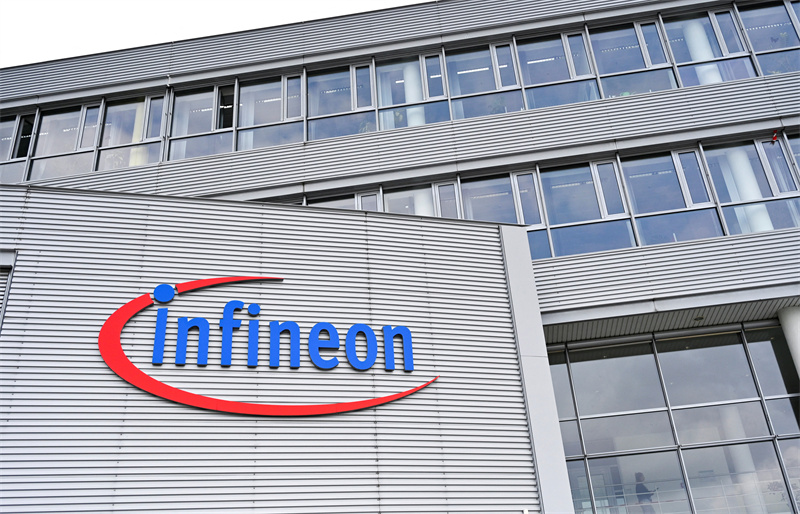Three power semiconductor plants across different regions have recently announced major updates, becoming a focal point of the industry: Infineon's new backend facility in Thailand has broken ground, India's Indichip Semiconductors and Japan's YMTL have partnered to invest $1.6 billion in the country's first SiC wafer plant, and Japan's Fuji Electric has commenced mass production of 6-inch SiC power semiconductors. These moves signal the rapid growth of the global power semiconductor industry.
Industry experts believe the construction of power semiconductor plants helps attract high-tech enterprises, forming a complete semiconductor supply chain in the region. This, in turn, drives local economies from traditional to high-tech industries, with further growth expected from suppliers of raw materials and components. Power semiconductor manufacturing, which requires large quantities of silicon wafers, chemical reagents, and specialty gases, will lead local suppliers to increase R&D and production investments, improving product quality and supply capabilities.
Global Power Semiconductor Market Booming
Thailand: Infineon Breaks Ground on New Semiconductor Facility
On January 14, 2025, Infineon Technologies broke ground on a new backend semiconductor manufacturing facility in Samut Prakan, located south of Bangkok. This new site is part of Infineon's plan to optimize and diversify its global manufacturing operations. The first building is slated to begin operations in early 2026, with the company scaling capacity based on market demand. All costs related to the plant are already included in Infineon's 2025 capital expenditure forecast.
The project has received support from Thailand's Board of Investment (BOI), and it is expected to play a pivotal role in Infineon's strategy to diversify its manufacturing footprint amid growing global demand for power modules, especially in industrial applications and renewable energy sectors. Narit Therdsteerasukdi, Secretary-General of BOI, emphasized that Infineon's investment would help improve Thailand's semiconductor ecosystem, making the country a key player in the global semiconductor industry.
The facility will focus on developing a strong semiconductor ecosystem, involving key components and materials in the supply chain. Infineon plans to work closely with local enterprises and universities to foster a skilled engineering workforce and boost its AI, digitalization, and automation capabilities. The factory will also contribute to Infineon's 2030 carbon-neutral goal by incorporating renewable energy, including solar modules, and collaborating with local energy suppliers for a sustainable power supply.

India: Indichip and YMTL to Build First SiC Wafer Plant with $1.6 Billion Investment
In a significant move, India-based power semiconductor startup Indichip Semiconductors Ltd., along with its Japanese partner Yitoa Micro Technology (YMTL), has signed an agreement with the Andhra Pradesh government to invest ₹14 billion (around $1.6 billion) to build India's first SiC (Silicon Carbide) wafer plant.
The initial capacity of the plant will be 10,000 wafers per month, with an anticipated ramp-up to 50,000 wafers per month over the next two to three years. The project will initially focus on 6-inch SiC wafers, with plans to transition to 8-inch wafers in the future.
The Andhra Pradesh government will provide land and necessary infrastructure to support the project, which is expected to meet the rapidly growing global demand for SiC power semiconductors, especially for applications in electric vehicles and renewable energy. This move places Indichip and YMTL in a favorable position to tap into the expanding SiC market.
Japan: Fuji Electric Starts Mass Production of 6-Inch SiC Power Semiconductors
Fuji Electric has launched mass production of 6-inch SiC power semiconductors at its semiconductor manufacturing base in Aomori Prefecture, Japan, marking a new milestone in the company's SiC power semiconductor business. Although Fuji Electric initially planned to start production in the summer of 2024, delays due to a slowdown in global electric vehicle (EV) sales pushed the timeline back.
Fuji Electric's Aomori facility is a subsidiary, Fuji Electric Tsugaru Semiconductor, located in Goshogawara City. The company intends to increase production capacity ninefold by fiscal year 2026 compared to fiscal year 2023. The move is part of Fuji Electric's broader strategy to expand its presence in the SiC power semiconductor market, with an investment of ¥200 billion (approximately $93 million) between 2024 and 2026 for new production lines.
In addition, Fuji Electric's Matsumoto factory, which produces traditional silicon-based power semiconductors, will also manufacture SiC power semiconductors for automotive, power systems, and railways. The new SiC production line at this facility is expected to be operational after 2027 and will focus on 8-inch wafers.
Additionally, Fuji Electric has partnered with Denso for a SiC semiconductor project, with a total investment of ¥211.6 billion ($98 million), to be subsidized by Japan's Ministry of Economy, Trade, and Industry. The joint venture will produce SiC devices, with production expected to begin in May 2027.
Silicon Carbide Industry: On the Rise
The focus on SiC in these recent developments is significant. SiC is a high-performance wide-bandgap semiconductor material with superior properties such as high breakdown voltage, fast electron drift velocity, high thermal conductivity, and radiation resistance. SiC devices can operate under high temperature, high pressure, high frequency, and large power conditions, making them essential for high-performance applications in sectors such as electric vehicles, renewable energy, and power electronics.
Technically, SiC production has a high barrier to entry, particularly in crystal growth and device manufacturing. Currently, major manufacturers such as Wolfspeed have commercialized 8-inch SiC devices, and companies like STMicroelectronics, Infineon, and ON Semiconductor are expected to complete the transition to 8-inch SiC wafer fabs by 2025.
SiC's key applications include electric vehicles, which account for 38% of its market share, followed by consumer power supplies (22%) and photovoltaic inverters (15%). Despite a slowdown in electric vehicle sales affecting SiC supply chains, the market for SiC power devices continues to grow, driven by the increasing demand for power density and efficiency in applications like EVs and renewable energy. It is projected that by 2028, the global SiC power device market will reach $9.17 billion.
+86 191 9627 2716
+86 181 7379 0595
8:30 a.m. to 5:30 p.m., Monday to Friday
